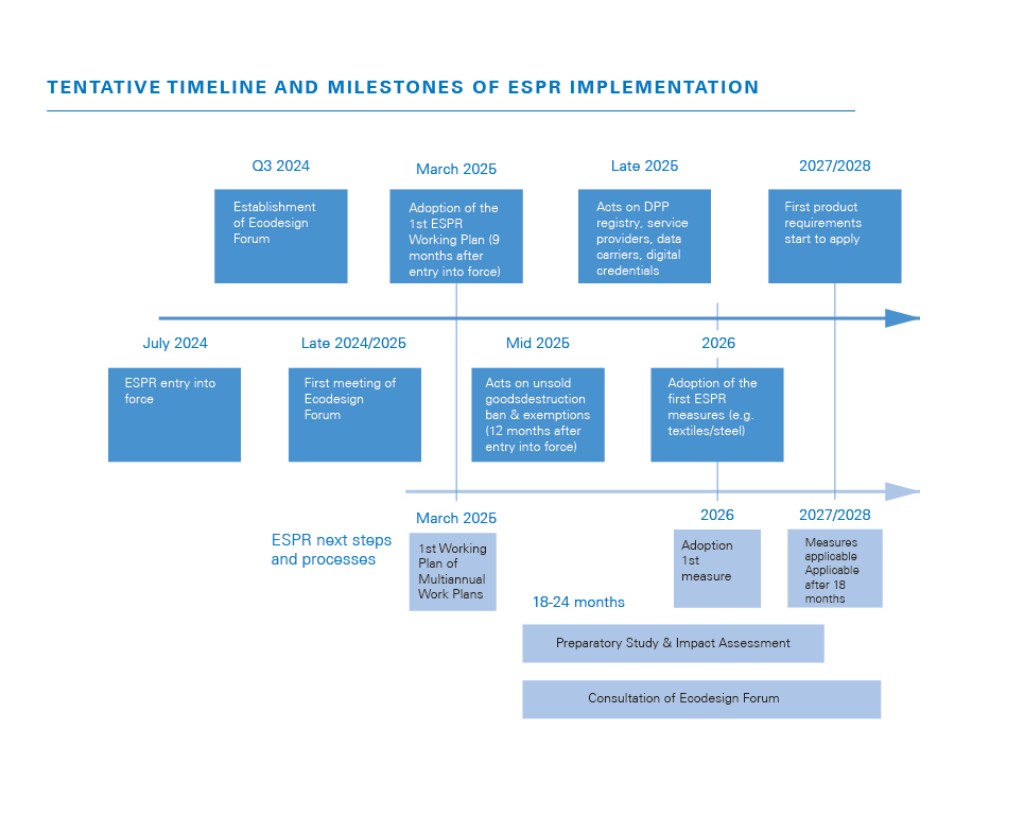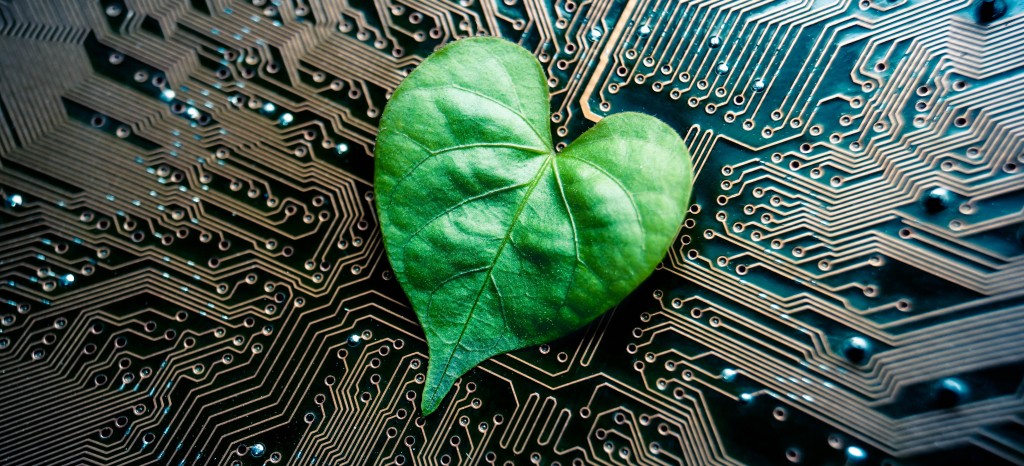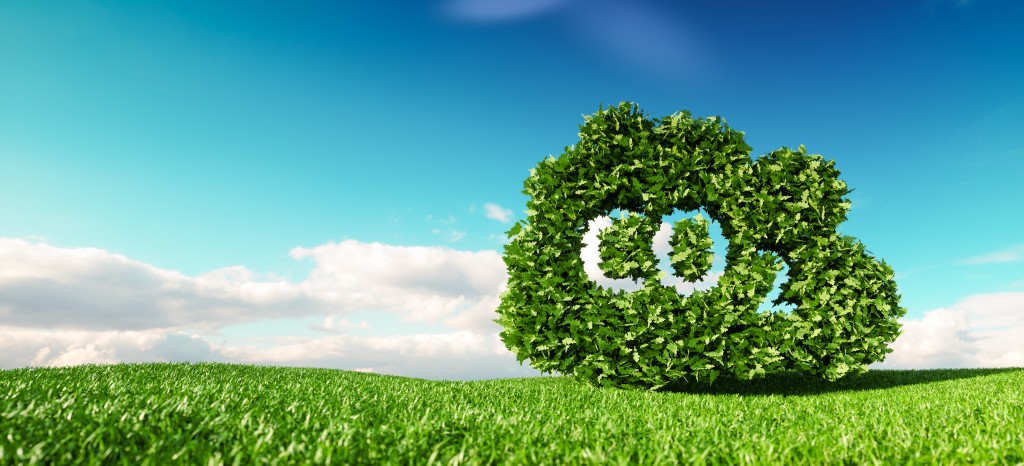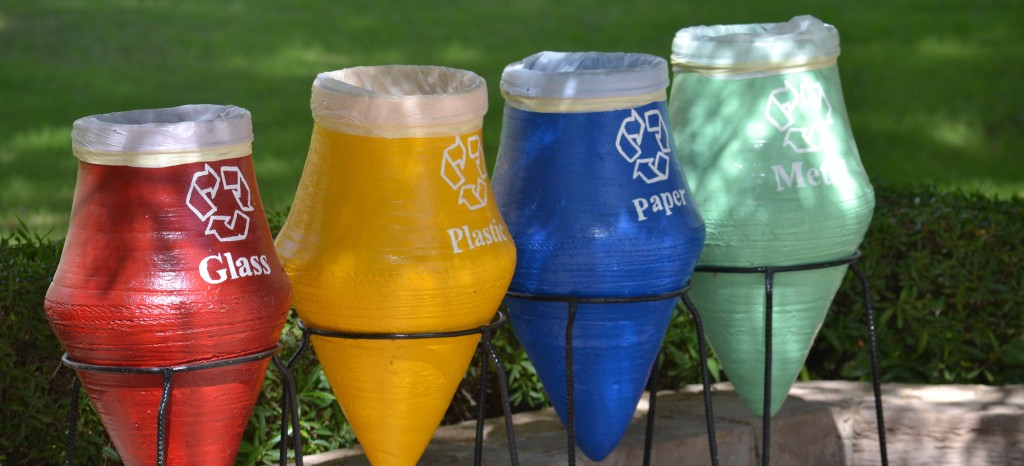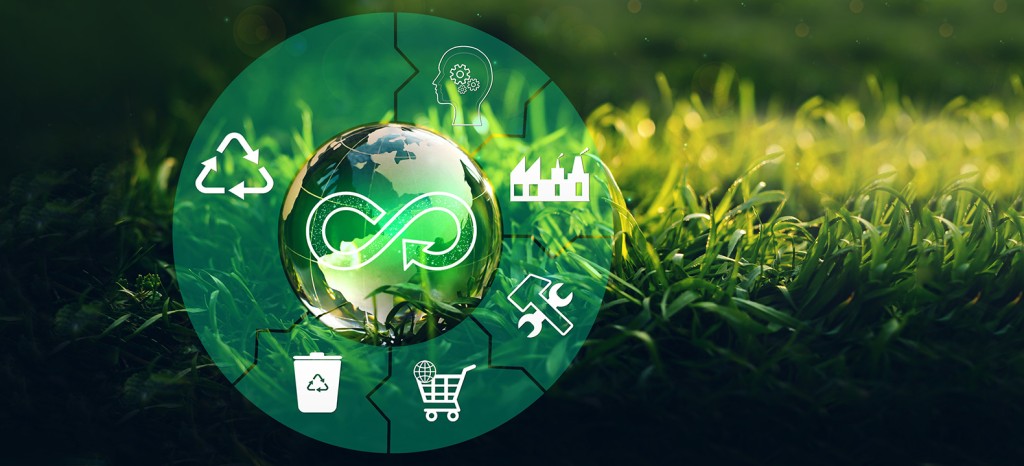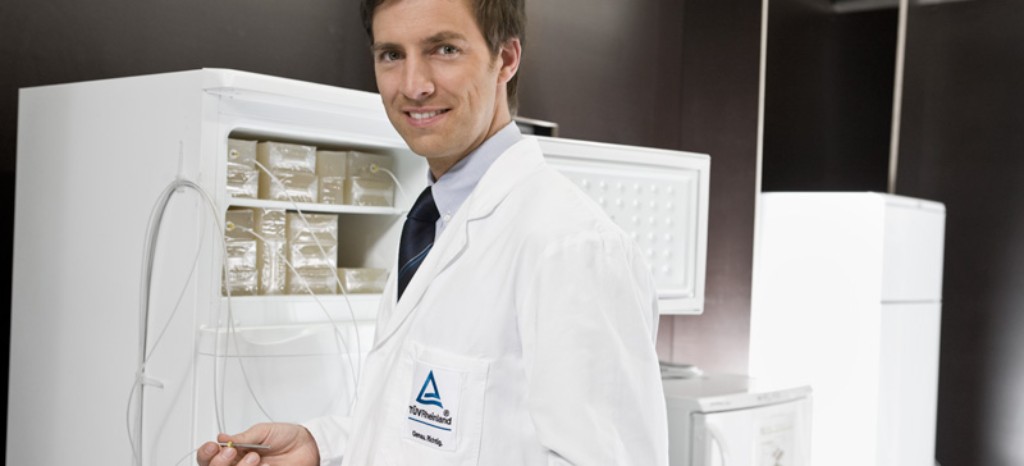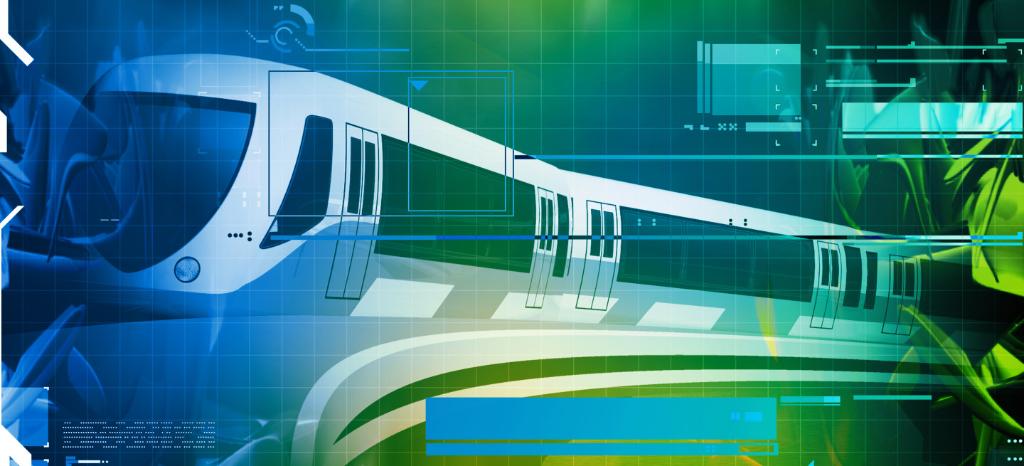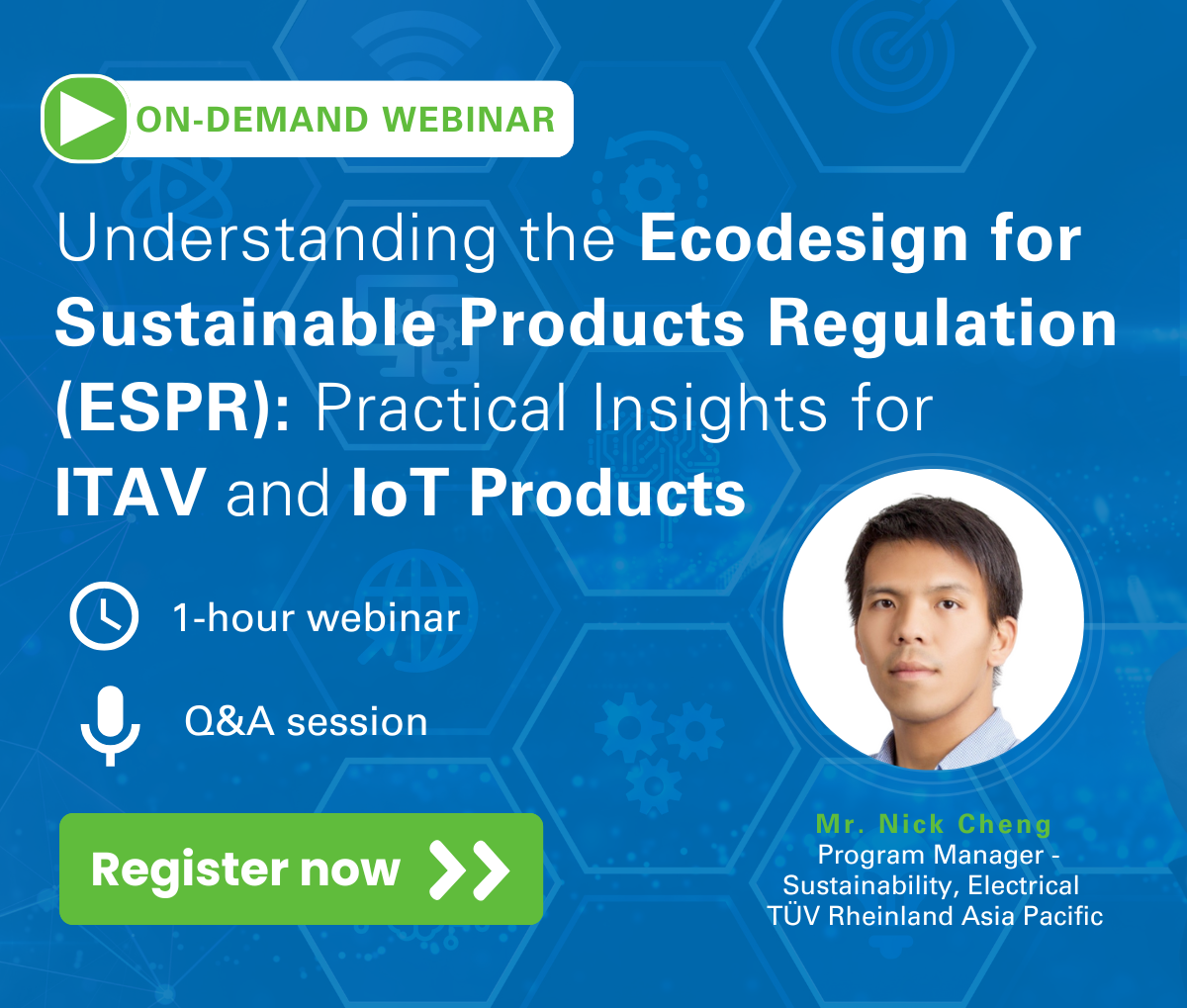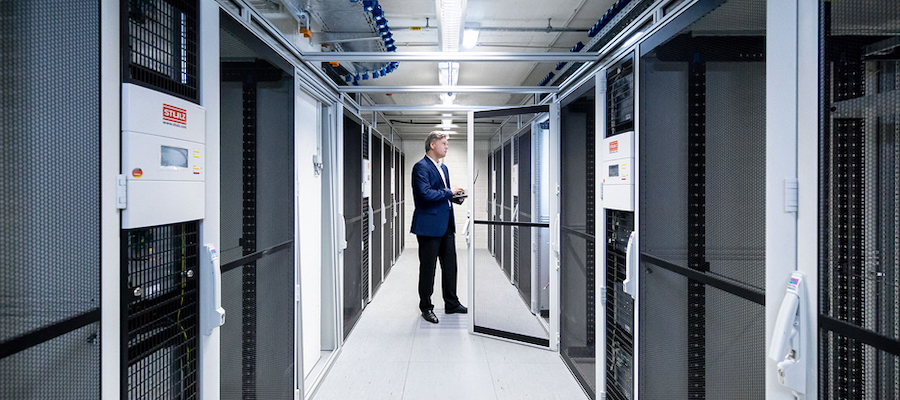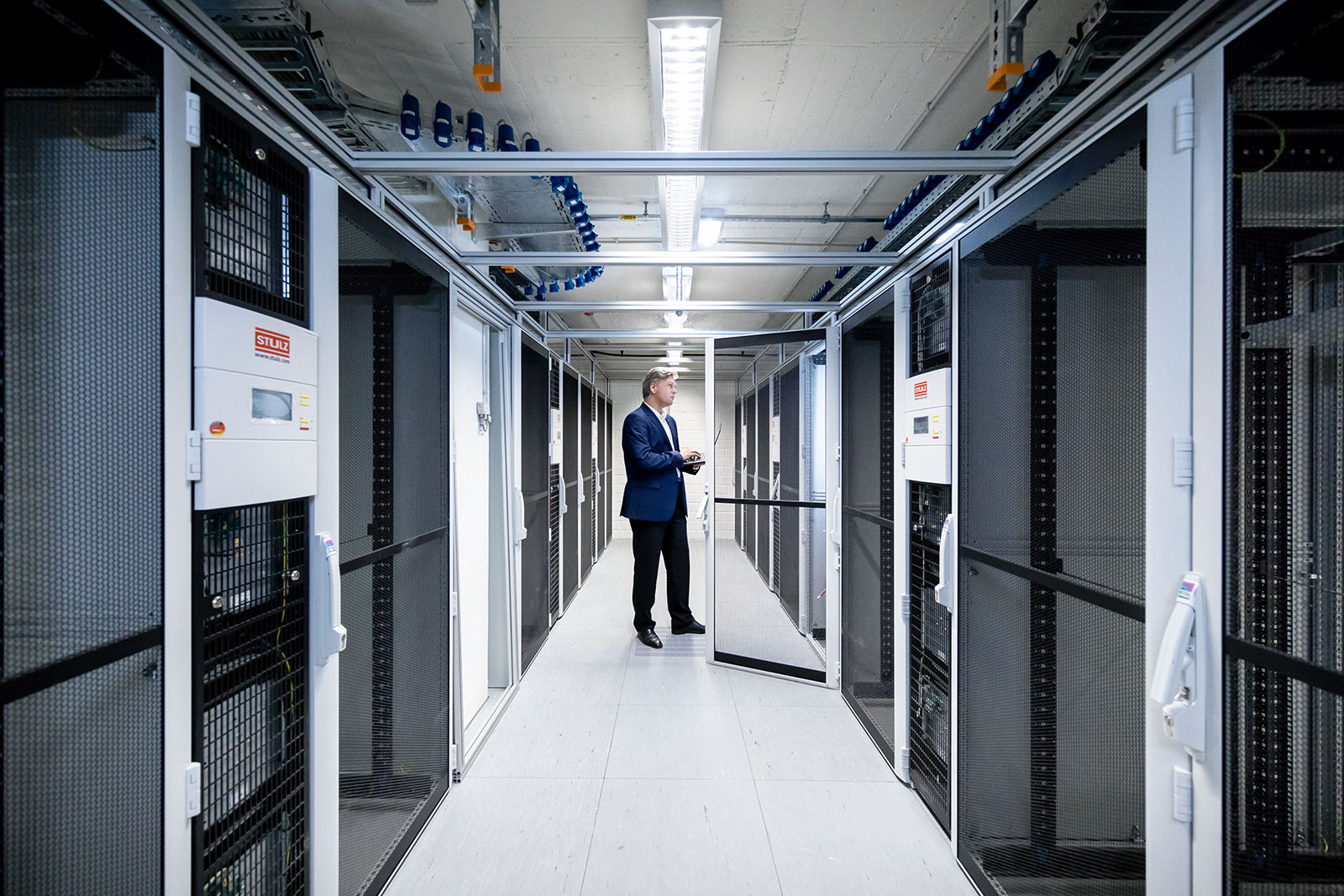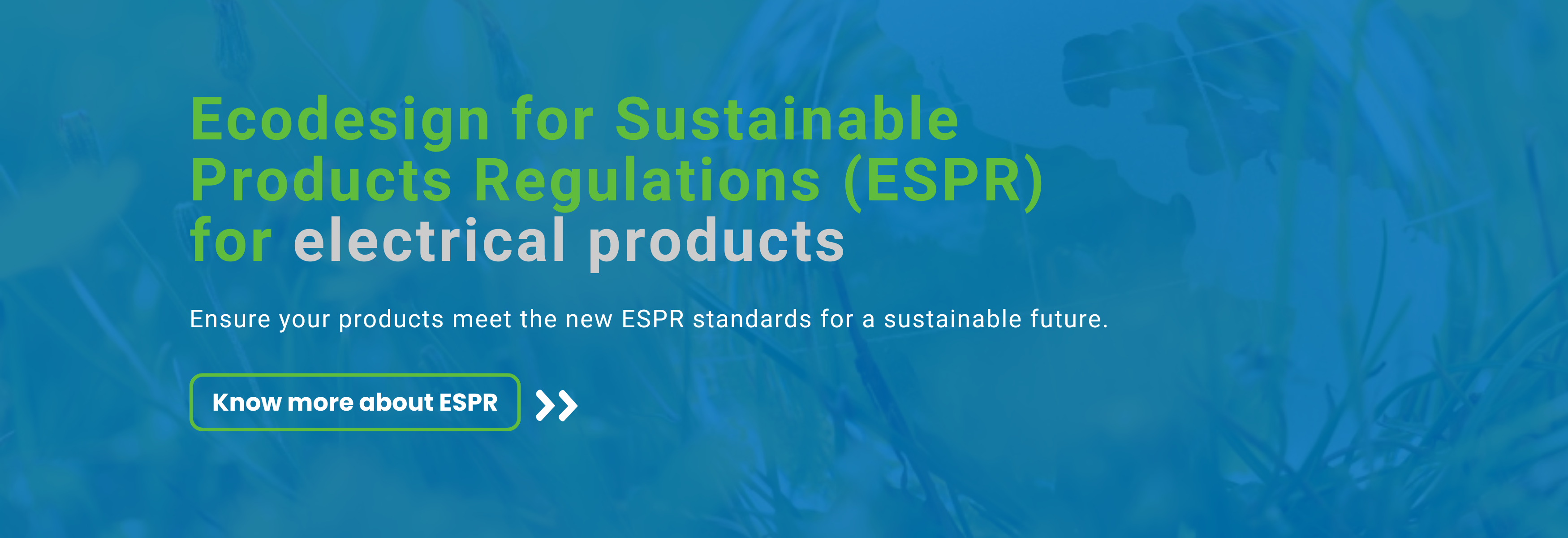
What is the EcoDesign for Sustainable Products Regulation (ESPR)?
The Ecodesign for Sustainable Products Regulation (ESPR), which came into force on 18 July 2024, is an EU regulation aimed at improving the environmental performance of products throughout their entire lifecycle. This includes energy efficiency, resource use, and end-of-life management.
The EcoDesign for Sustainable Products Regulation (ESPR) is part of the European Green Deal and supports the EU's ambition to become climate neutral by 2050. It applies to a wide range of products, with a significant focus on electronics, impacting manufacturers, suppliers, and importers globally.
ESPR Timeline: Key Milestones for Compliance
The Ecodesign for Sustainable Products Regulation (ESPR) is expected to be implemented in phases, with initial regulatory measures and guidelines being approved in July 2024.
Full compliance and enforcement of the regulation across all relevant sectors are anticipated to be achieved by 2030.
Key Changes with the Full Implementation of ESPR
Once fully implemented, the EcoDesign for Sustainable Products Regulation (ESPR) will enforce stricter requirements on electronic products, including:

Energy Efficiency: Increased standards for energy consumption during product use and improved energy labeling.

Sustainability Requirements: Stricter guidelines for the recyclability, durability, and use of hazardous materials in electronic products.

Extended Producer Responsibility: Manufacturers must take responsibility for the entire lifecycle of their products, including take-back programs and recycling initiatives.
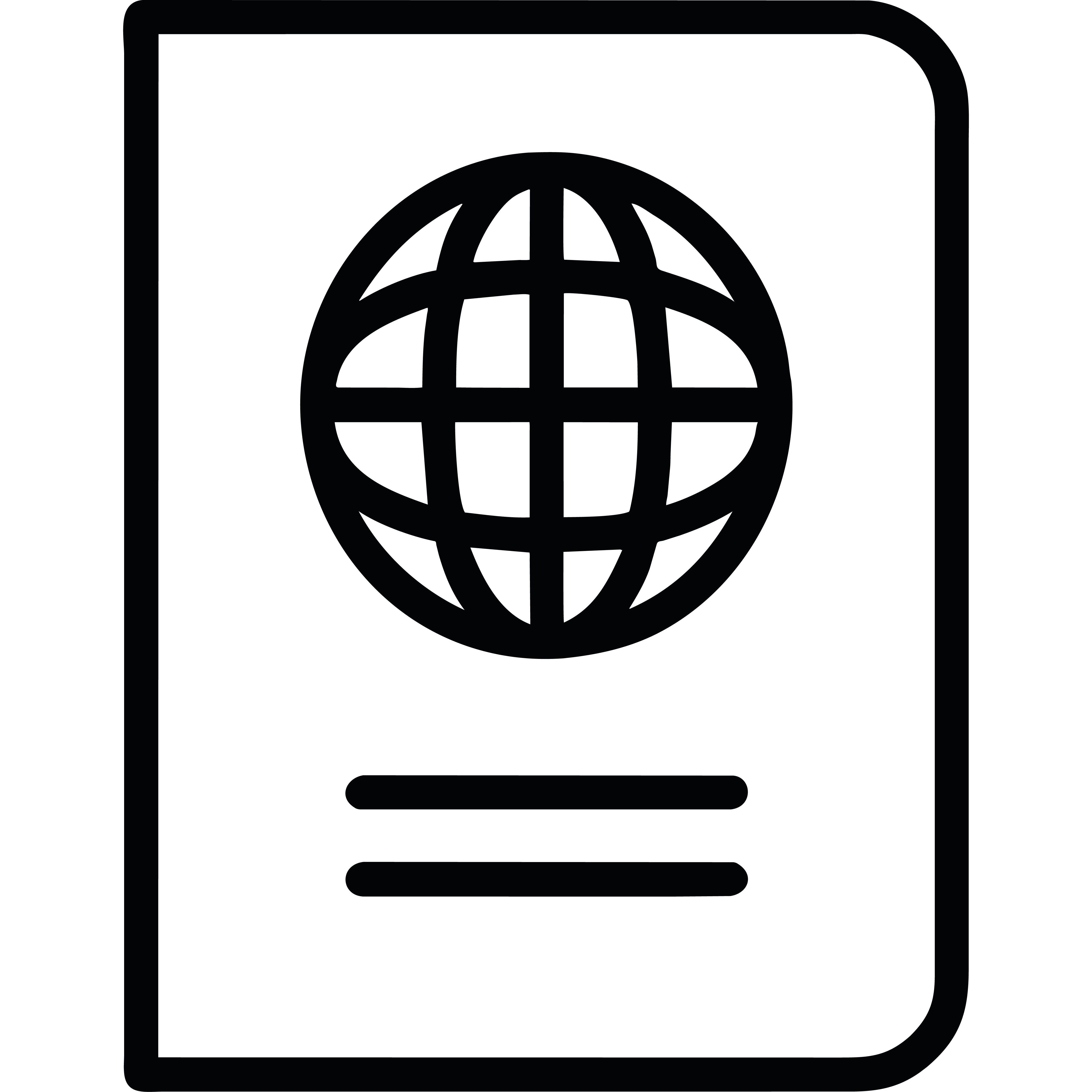
Product Information Transparency: Detailed data (ESPR Digital Product Passport) on product sustainability must be available, ensuring consumers and businesses can make informed decisions.
Key product aspects under ESPR (Article 5: Ecodesign requirements)
The Ecodesign for Sustainable Products Regulation (ESPR) presented the framework of certain key product aspects aiming to enhance the sustainability and environmental performance of products throughout their lifecycle, they include:
- Recycled Content
- Generation of Waste Management
- Presences of Substances of Concern
- Environmental Footprint, Carbon Footprint
- Water Use and Efficiency
- Resource Use & Efficiency
- Energy Use & Efficiency
- Upgradability
- Reusability
- Reparability
- Durability
- Reliability
- Maintenance & Refurbishment
- Possibility of Recycling
- Possibility of Recovery of Materials
- Possibility of Remanufacturing
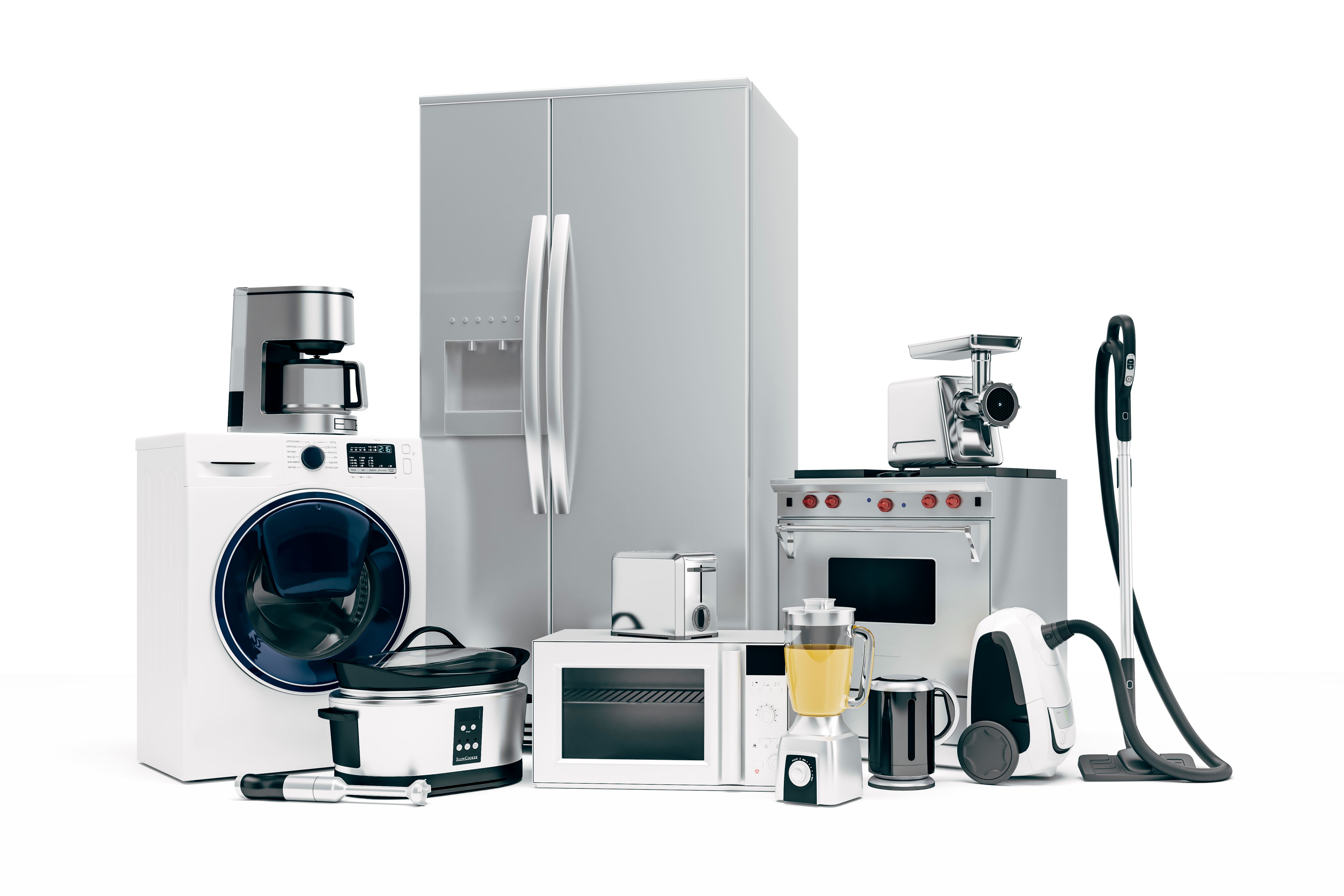
The Impact of ESPR on Companies that Import, Sell, or Service Electronic Products
The implementation of ESPR will significantly impact businesses involved in the import, sale, and servicing of electronic products:
- Importers will need to ensure that their products meet the EU's sustainability standards before they can be marketed, with strict penalties for non-compliance.
- Retailers and Distributors will have to adjust their product offerings and may face challenges in meeting updated labeling and sustainability requirements.
- Service Providers will need to adjust their operations to comply with the regulations regarding repair, recycling, and waste management.
TÜV Rheinland’s ESPR Compliance Services
As your trusted partner for ESPR, we offer a range of comprehensive services to guide you through the process of achieving ESPR compliance. Our team of experts provides:
- Product Assessment and Certification: Ensure your products meet ESPR requirements through rigorous sustainability testing and certification processes.
- Guidance on EcoDesign: Tailored support to help you integrate eco-friendly design principles and material choices.
- Compliance Training: Equip your teams with knowledge and strategies to navigate ESPR’s technical standards and deadlines.
- Sustainability Consultation: Gain insights on optimizing your production process to reduce environmental impact and meet regulatory goals.
Get in touch with us now!
We’re here to help! Please complete the form below so we can assist you more effectively.
Range of Sustainability Services for Your Electrical Products
Our comprehensive range of sustainability services are covering Energy, Products, Lifecycle, Systems, Living, Buildings, Factory, Transportation, etc. Navigate through our directory to explore our wide range of sustainability services for electrical products.
TÜV Rheinland’s Green Product Mark is a voluntary environmental label that certifies a product’s eco-friendliness within its category, based on life cycle considerations.
As a product registration entity approved by the Green Electronics Council, we offer manufacturers of electronic products and EPEAT subscribers individual services to help navigate through the EPEAT registry.
Our sustainability experts conduct and certify Life Cycle Assessments for your products and calculate your company’s CO2 footprint. Our sustainability services also include Product Carbon Footprints and Environmental Product Declarations (EPDs).
TÜV Rheinland's "Product Carbon Reduction" service assesses the carbon footprint reduction of electrical products across generations through rigorous third-party audits.
The Recycled Material Verified Mark is a voluntary environmental label. Our sustainability experts assist manufacturers in meeting ISO 14021 standards for recyclability, reusability, recycled materials, and more.
Assessing product longevity, TÜV Rheinland’s service scores the repairability of electronics, promoting eco-friendly practices.
We assess the energy efficiency of your consumer products, from computers to coffee machines, in accordance with established standards and regulations, including the 2009/125/EC eco-design directive and the EuP implementation directive for energy-related products.
Our energy efficiency labeling services ensure compliance with global standards, including Australia's MEPS, EU Ecolabel, Thailand's Green Label, Korea Eco-Label, and Japan Eco Mark. We help businesses align with international energy performance and sustainability requirements.
Stay on top of sustainability topic
Discover how to integrate sustainability into your business strategies by joining our sustainability webinars. Sign up for the on-demand session to explore actionable insights or register for upcoming events to stay ahead with the latest trends and solutions. Start driving impactful change today!
Explore TÜV Rheinland's on-demand webinar to learn how sustainability services can enhance your business. Gain insights into current trends, industry standards, and strategies for implementing eco-friendly practices across operations
The Ecodesign for Sustainable Products Regulation (ESPR) is transforming ITAV and IoT manufacturing. Learn about new sustainability requirements, the Digital Product Passport (DPP), and compliance strategies in this expert-led webinar.
Back to top

